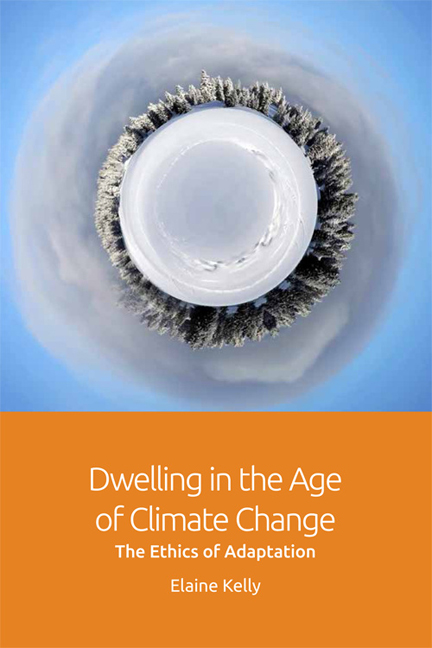2 - Rethinking Adaptation: An Ethos of Dwelling
Published online by Cambridge University Press: 29 April 2021
Summary
‘I cannot disentangle myself from society with the Other.’
Emmanuel Levinas‘Climate change is gradually divorcing us from our land and eroding our subsistence way of life. Please think for a moment how you would react if climate change threatened your very existence as a distinct people.’
Inuit activist Sheila Watt-CloutierThe crisis of human-induced climate change brings us back home. It is an issue which invokes the fear of species annihilation, certainly, but more immediately draws us into confrontation with the way in which we inhabit this earth. In mainstream climate change literature, adaptation is taken to refer to the adjustments, pre-emptive or reactive, that people make in response to predicted or actual climate events. These alterations can occur at the level of social, economic or ecological processes, practices and structures. In other words, at present, our adaptation discourse posits that with greater economic resources and more advanced technology we will limit the impacts of climate change and assist with any adaptations as necessary (Glover 2006).
This reduction of adaptation to a series of ‘technical problems’ (Glover 2006: 170) – which require cost–benefit analysis (a neoliberal logic) – fails to appreciate the deeply philosophical question inherent in the desire to adapt. Adaptation is about future habitation. What else is survival for but the promise of a future? The failure to survive – death or extinction – is the antithesis of adaptation and dwelling. This concern for future habitation reveals to us the fact that adaptation is centrally about ‘dwelling’. For Heidegger, authentic dwelling confronts mortality as a condition of existence and works towards a ‘good death’ (1978a). In Levinas, the possible death of the Other contests my claim to dwell without interruption; I must welcome the Other and renounce the violence of my possession. From this perspective, adaptation is a political contestation over the foundations of the dwelling place that is both preceded and exceeded by ethics. This concern for the future is ultimately ethics. But as Derrida writes, such an obligation cannot be postponed as ‘this future, this beyond, is not another time, a day after history. It is present at the heart of experience’ (1978: 118–19).
- Type
- Chapter
- Information
- Dwelling in the Age of Climate ChangeThe Ethics of Adaptation, pp. 42 - 60Publisher: Edinburgh University PressPrint publication year: 2018

